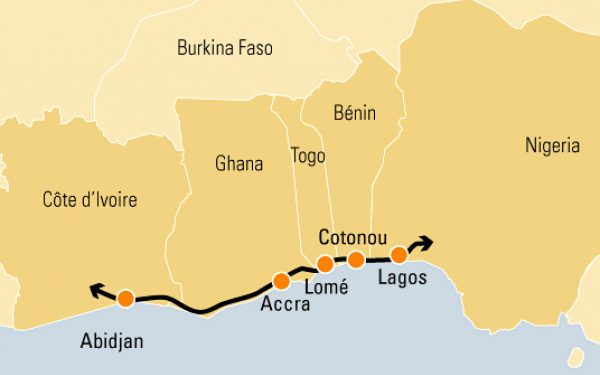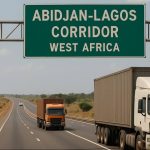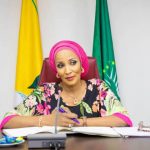Customs Directors General from Nigeria, Ghana, Benin, Côte d’Ivoire, and Togo have agreed to implement the ECOWAS Interconnected Transit Goods Management System (SIGMAT) to streamline trade along the Abidjan-Lagos Corridor.
The agreement aims to facilitate trade by electronically sharing transit goods information, reducing the reliance on manual documentation at border checkpoints. This initiative was announced on the ECOWAS website on Saturday.
During a meeting in Lomé, Togo, customs leaders from these countries finalized plans to deploy SIGMAT, discussing strategies to overcome trade obstacles. This meeting followed recommendations from the ECOWAS Trade Liberalization Scheme (ETLS) ministerial conference held in Cotonou last October.
In his opening address, ETLS Chairman Dr. Mohammed Ibn Chambas emphasized the importance of SIGMAT for fast-tracking revenue mobilization and securing transit between member states. He stated, “On behalf of the ETLS Task Force, I welcome the SIGMAT initiative, which is essential for both securing transit and mobilizing customs revenues necessary for our states’ development.”
The meeting concluded with a commitment to adopt the SIGMAT e-hub by September 2024. Participants resolved to conduct awareness and training activities for their partners and administrations. They also urged the ECOWAS Commission to connect all member states to the SIGMAT e-hub and to develop a SIGMAT website to enhance transparency.
Launched by ECOWAS in March 2019, the SIGMAT system interconnects customs IT systems across ECOWAS countries, allowing stakeholders to track goods along road corridors and reducing checkpoints and load breaks at borders. By 2023, customs administrations in several West African countries, including Benin, Burkina Faso, Côte d’Ivoire, Ghana, Guinea, Mali, Niger, Senegal, and Togo, had embraced SIGMAT.
The Abidjan-Lagos Corridor, spanning 1,080 kilometers and estimated to cost $15.6 billion, links key economic hubs in West Africa, including Abidjan, Accra, Lomé, Cotonou, and Lagos. This corridor is crucial for connecting bustling seaports and serving landlocked countries such as Burkina Faso, Mali, and Niger. Dr. Akinwumi Adesina, President of the African Development Bank, recently announced that the corridor had secured $15.5 billion in investment interest.










